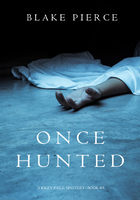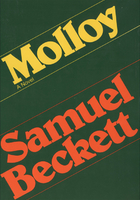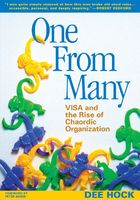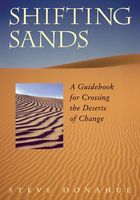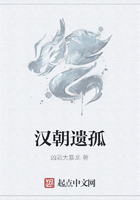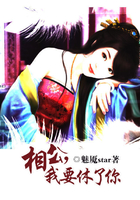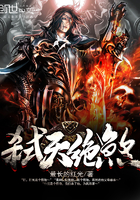with Tough Problems
TOUGH PROBLEMS usually don't get solved peacefully. They either don't get solved at all—they get stuck—or they get solved by force. These frustrating and frightening outcomes occur all the time. Families replay the same argument over and over, or a parent lays down the law. Organizations keep returning to a familiar crisis, or a boss decrees a new strategy. Communities split over a controversial issue, or a politician dictates the answer. Countries negotiate to a stalemate, or they go to war. Either the people involved in a problem can't agree on what the solution is, or the people with power—authority, money, guns—impose their solution on everyone else.
There is another way to solve tough problems. The people involved can talk and listen to each other and thereby work through a solution peacefully. But this way is often too difficult and too slow to produce results, and force therefore becomes the easier, default option. I have written this book to help those of us who are trying to solve tough problems get better at talking and listening—so that we can do so more successfully, and choose the peaceful way more often. I want talking and listening to become a reliable default option.
Problems are tough because they are complex in three ways. They are dynamically complex, which means that cause and effect are far apart in space and time, and so are hard to grasp from firsthand experience. They are generatively complex, which means that they are unfolding in unfamiliar and unpredictable ways. And they are socially complex, which means that the people involved see things very differently, and so the problems become polarized and stuck.
Our talking and listening often fails to solve complex problems because of the way that most of us talk and listen most of the time. Our most common way of talking is telling: asserting the truth about the way things are and must be, not allowing that there might be other truths and possibilities. And our most common way of listening is not listening: listening only to our own talking, not to others. This way of talking and listening works fine for solving simple problems, where an authority or expert can work through the problem piece by piece, applying solutions that have worked in the past. But a complex problem can only be solved peacefully if the people who are part of the problem work together creatively to understand their situation and to improve it.
Our common way of talking and listening therefore guarantees that our complex problems will either remain stuck or will get unstuck only by force. (There is no problem so complex that it does not have a simple solution . . . that is wrong.) We need to learn another, less common, more open way.
I have reached these conclusions after twenty-five years of working professionally on tough problems. I started off my career as someone who came up with solutions. First I was a university researcher in physics and economics, and then an expert analyst of government policy and corporate strategy. Then in 1991, inspired by an unexpected and extraordinary experience in South Africa, I began working as a neutral facilitator of problem-solving processes, helping other people come up with their own solutions. I have facilitated leadership teams of companies, governments, and civil society organizations in fifty countries, on every continent—from Royal Dutch/Shell, Intel, PricewaterhouseCoopers, and Federal Express, to the Government of Canada and the European Commission, to the Congress of South African Trade Unions and the Anglican Synod of Bishops—helping them address their organizations' most difficult challenges. And I have also facilitated cross-organizational leadership teams—composed of businesspeople and politicians, generals and guerrillas, civil servants and trade unionists, community activists and United Nations officials, journalists and clergy, academics and artists—helping them address some of the most difficult challenges in the world: in South Africa during the struggle to replace apartheid; in Colombia in the midst of the civil war; in Guatemala in the aftermath of the genocide; in Argentina when the society collapsed; and in deeply divided Israel-Palestine, Cyprus, Paraguay, Canada-Quebec, Northern Ireland, and the Basque Country.
Commuting back and forth between these different worlds has allowed me to see how tough problems can and cannot be solved. I have been privileged to work with many extraordinary people in many extraordinary processes. From these experiences I have drawn conclusions that apply not only in extraordinary but also in ordinary settings. In the harsh light of life-and-death conflicts, the dynamics of how people create new realities are painted in bright colors. Having seen the dynamics there, I can now recognize them in circumstances where they are painted in muted colors. I have learned what kinds of talking and listening condemn us to stuckness and force, and what kinds enable us to solve peacefully even our most difficult problems.
My favorite movie about getting unstuck is the comedy Groundhog Day. Bill Murray plays Phil Connors, a cynical, self-centered television journalist who is filming a story about Groundhog Day, February 2, in the small town of Punxsutawney, Pennsylvania. He despises the assignment and the town. The next morning, he wakes up to discover, with horror, that it is still February 2, and that he has to live through these events again. This happens every morning: he is stuck in reliving the same day over and over. He explains this to his producer Rita, but she laughs it off. He tries everything he can in order to break this pattern—getting angry, being nice, killing himself—but nothing works. Eventually he relaxes into appreciating the present, and opens himself up to the town and to Rita. Only then does he wake up to a new day and a better future.
Many of us are like Phil Connors. We get stuck by holding on tightly to our opinions and plans and identities and truths. But when we relax and are present and open up our minds and hearts and wills, we get unstuck and we unstick the world around us. I have learned that the more open I am—the more attentive I am to the way things are and could be, around me and inside me; the less attached I am to the way things ought to be—the more effective I am in helping to bring forth new realities. And the more I work in this way, the more present and alive I feel. As I have learned to lower my defenses and open myself up, I have become increasingly able to help better futures be born.
The way we talk and listen expresses our relationship with the world. When we fall into the trap of telling and of not listening, we close ourselves off from being changed by the world and we limit ourselves to being able to change the world only by force. But when we talk and listen with an open mind and an open heart and an open spirit, we bring forth our better selves and a better world.

